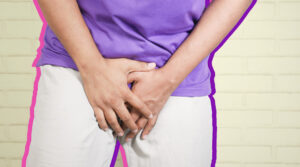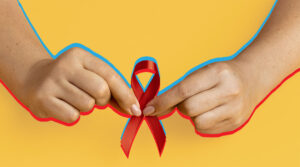The outbreak of Monkeypox, better known as monkey pox or Monkeypox, continues to grow around the world. According to data from the Pan American Health Organization (PAHO), as of September 19, 37,444 confirmed cases had been registered in the Americas region, with the United States, Brazil, and Peru being the three countries with the highest number of cases totals.
With no specific treatment for the disease and limited access to available vaccines for this infection, health agencies have emphasized self-care recommendations.
For this reason, both the World Health Organization (WHO) and the United States Centers for Disease Control and Prevention (CDC) have issued a series of measures to manage the most common symptoms of Monkeypox when it is not necessary Go to a hospital or health center.
Caring for yourself and caring for others
Although not considered a serious disease, Monkeypox is highly contagious and can pose a significant risk to people whose immune systems are not well-supported, such as young children or immunosuppressed people, such as those living with HIV or who are undergoing chemotherapy.
Although there is no treatment to cure the infection, there are some medications and certain measures that can lessen the symptoms. Most cases, the CDC points out on its website, heal spontaneously after 2 to 4 weeks.
During that time it is important to remain isolated, until you are sure that the rash has disappeared and a new layer of skin has formed where the lesions were. This is because the lesions themselves (both their liquid content and their scabs) can spread the virus to other people and to animals (such as pets or farm animals).
Management of infection at home
If a person has already been diagnosed with Monkeypox or if they have symptoms that make them think they have it, the WHO and the CDC recommend the following actions for self-care:
- Do not scratch
- Wash hands before and after touching rashes
- Wash the lesions with sterile water or an antiseptic, then keep the lesion area dry.
- If there are lesions inside the mouth, rinse them with salt water about four times a day; prescription mouthwashes containing anesthetics (such as lidocaine) or antiseptics (such as chlorhexidine) may also be used
- Take baths in lukewarm water with baking soda or magnesium sulfate
- If the pain is severe, take paracetamol or ibuprofen
In addition, it is important that the person take precautions to avoid spreading Monkeypox to other people with whom they live:
- Isolate in a separate room
- Use a dedicated bathroom or, if this is not possible, wash and/or disinfect it after each use
- Wash your hands frequently with soap and water or use alcohol gel
- Wash and/or disinfect surfaces you touch
- Do not sweep or vacuum
- Use their own plates, glasses, cutlery, bedding and towels, as well as electronic devices such as telephones
- Separate dirty clothes in a plastic bag and wash them separately with detergent and hot water (over 60°C).
- Keep windows open
In some cases, it is not possible to have a room exclusively for the sick person, so if they must share a room with others, these cares must be added to those already mentioned:
- Cover injuries with a bandage or cloth
- Do not touch anyone or let them touch you
- Wear a well-fitting mask
Rashes on the genitals
It should be remembered that, according to what has been studied about this outbreak of Monkeypox, rashes in the genital and anal areas are very common, so there may be significant discomfort in these areas. To alleviate them, sitz baths can be given, either with only warm water or with povidone-iodine or magnesium sulfate.
Mental health is important too
The isolation period for Monkeypox is long (4 weeks), so the WHO provides some advice to take care of mental health during this period:
- Do relaxing activities
- Keep in touch with others (through social networks, calls or text messages)
- If there is not much discomfort, exercise in the room
- Ask for medical or psychological help, if you need it
- Staying hydrated, eating well and getting enough sleep are also self-care activities
Signs to contact a doctor
With the above arrangements, anyone could cope with the symptoms of Monkeypox at home. However, the WHO recommends contacting a healthcare professional immediately if you experience any of these complications:
- Rashes hurt or become infected
- Fever, nausea, or vomiting get worse
- It is impossible to eat or drink liquids
- There is shortness of breath, dizziness, or confusion
Monkeypox is an infection that seems to be spread primarily through sexual activity, so it’s important to stay informed about how to avoid it and what steps to take if you do get it. At AHF Latin America and the Caribbean we work to prevent this and other sexual infections from spreading. Come to our offices in your country and learn about our services.






